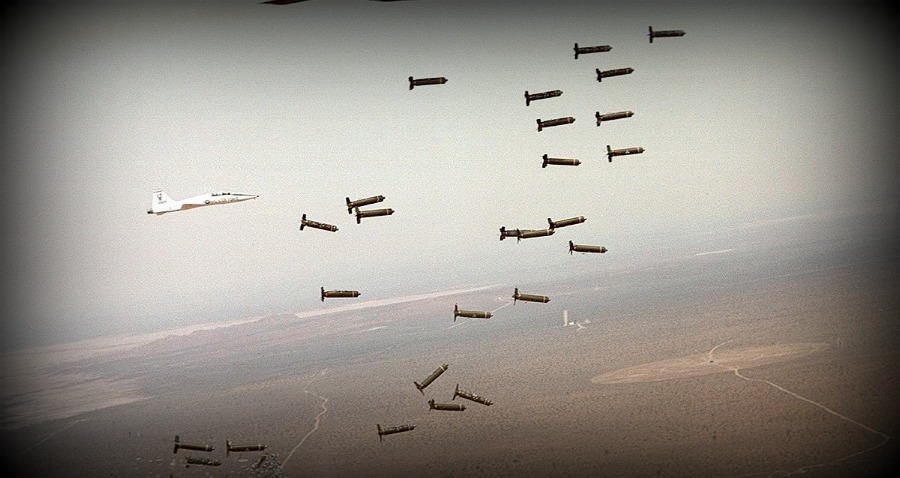The last remaining cluster munitions maker in the US dropped out of the business ahead of a report showing that the illegal bombs are still being deployed in war zones around the world.
In its seventh annual report, the Cluster Munitions Monitor primarily implicated Russia, Syria, and Saudi Arabia for their ongoing use of cluster bombs, which were banned by more than 100 countries in 2008.
The report noted, however, that many of the illegal munitions used–particularly in Saudi Arabia’s air campaign against Yemen–were produced in the United States.
On Wednesday, just before the results of the probe were released, Rhode Island-based weapons manufacturer Textron announced it would cease production of cluster munitions. The move was prompted by a decision made by President Obama in May to stop delivering the ordinances to Saudi Arabia, after it was first revealed that the US ally was using them around civilian populations.
Cluster bombs, which release smaller munitions upon deployment, pose a particular risk to non-combatants. The smaller ordinances often land to the ground unexploded and are later detonated by accident. When the 2008 Convention on Cluster Munitions was signed, it included 29 nations that agreed to completely destroy existing stockpiles.
The word’s largest manufacturers of cluster munitions, the US and Russia, however, have resisted adding their nations to the weapons ban. Although the US has reportedly not used cluster munitions since 2007, there’s evidence Russia has deployed the bomblets in its campaign over Syria as recently as this year.
The report found that at least 13 different kinds of cluster munitions were deployed in Syria since 2012, with “compelling evidence” that Russia was using the bombs exclusively or in conjunction with the Syrian military within rebel-held territories.
In Yemen, there were at least nineteen different cluster bomb attacks carried out by the Saudi military against Houthi rebels between April 2015 and February 2016. Of the seven types of cluster munitions used in those assaults, four were manufactured in the US, according to the reports’ findings.
One of the bombs, a CBU-105 Sensor Fuzed Weapon, deployed 10 canisters. Each container then had four submunitions known as “skeet.” It was produced by Textron.
The company’s decision to bail on future production of the armaments was met with optimism by human rights groups.
“Textron was the last U.S. manufacturer of cluster munitions, so this decision now clears the path for the administration and Congress to work together to permanently end U.S. production, transfer and use of cluster munitions,” said Mary Wareham, the advocacy director for the arms division at Human Rights Watch. Wareham was also involved in production of the report.









